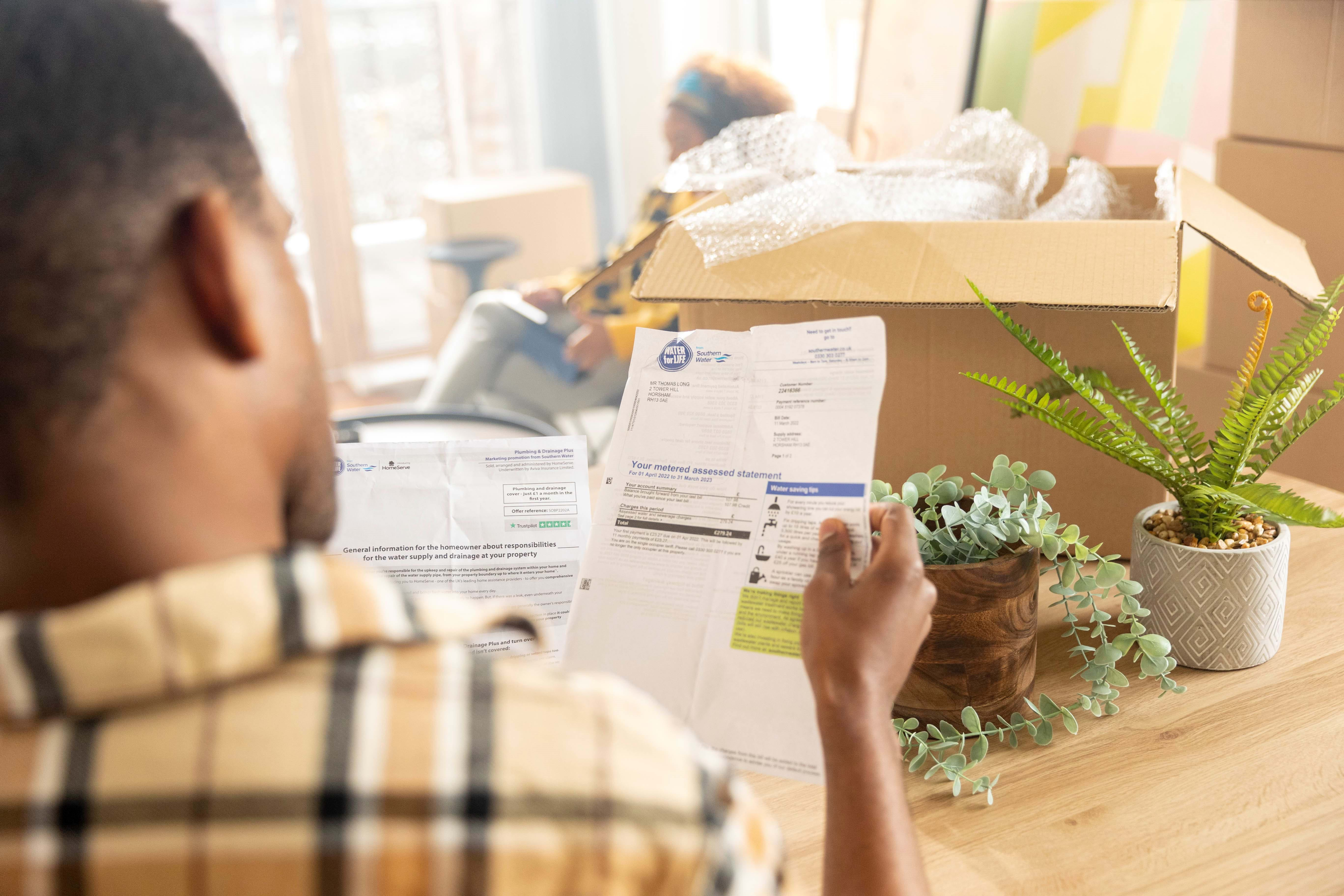For the last two years, the UK has been going through a heightened cost of living crisis. The Scotsman reports that "almost 200,000 people use local gym to shower to save energy costs and keep warm". This survey data comes from a YouGov poll and goes to show the extent of the struggle people are facing all over the UK. There are many ways to save money despite rising energy prices. In this Peabody article, we have dived into what a utility bill is and how to manage each of them appropriately to reduce your monthly household costs.
What is a utility bill?
NerdWallet defines a utility bill as a “monthly statement of the amount a household owes for any basic services that generally keep a home operable”. They often arrive by post at your address or can be downloaded online. They're very useful when you need proof of residence since they have your name at the top.
Utility bills are typically for electricity, water, gas, heating, sewer and wastewater, trash and recycling. They can be closely looked at to better understand your consumption and reduce your costs on the long term. All you need to do is track your consumption patterns, manage costs, and budget effectively. Here are some tips you can follow.
Conduct a utility bill audit
The first step to take when trying to reduce the cost of your utility bills is to conduct an audit:
- Start by gathering all recent utility bills, including electricity, water, gas, internet, and any other relevant services.
- Organize them chronologically and review each bill carefully to identify patterns in consumption, fluctuations in costs, and any potential discrepancies or errors.
- Consider creating a spreadsheet or using budgeting software to track and analyse utility expenses over time, which can provide valuable insights into usage trends and opportunities for optimization.
Once you've compiled and organized your utility bills, examine each service individually to assess areas where you can reduce consumption or negotiate better rates. By conducting a thorough utility bill audit and implementing cost-saving measures, you can take control of your expenses and make informed decisions to optimize your household or business budget.
Save money one utility bill at a time
Monitor your water usage
Water bills can often be a significant portion of monthly utility expenses, but there are several effective strategies to reduce them:
- Start by addressing leaks promptly throughout your home, including faucets, toilets, and pipes.
- Consider installing water-saving fixtures such as low-flow showerheads and faucets, as well as dual-flush toilets, which can significantly reduce water consumption.
- Be mindful of your outdoor water usage by optimizing watering systems, collecting rainwater for gardening, and using drought-resistant landscaping to minimize how much watering is needed.
Another effective way to lower water bills is to monitor usage closely and adjust habits accordingly. Small and yet efficient changes can be to take shorter showers, turn off taps when not in use, and only run washing machines and dishwashers with full loads. By implementing these measures and adopting a water-conscious mindset, you can save a considerable amount on your water bills while also contributing to living a more eco-friendly lifestyle.

Have a thorough look at your energy bill to understand where savings can be made
Reducing your electricity bill
Electricity bills can be a significant expense for many households, but there are numerous strategies to help reduce them and save money. Before diving into anything drastic, you can start by reconsidering your energy usage habits. Think turning off lights, electronics, and appliances when they're not in use, using natural light during the day whenever possible. You can also replace traditional incandescent light bulbs with energy-efficient LED or CFL bulbs, which not only consume less electricity but also last longer, reducing replacement costs over time.
Once that is done, you can tackle bigger changes to your home in order to reduce costs further. You can choose to:
- Upgrade to energy-efficient appliances and electronics, such as refrigerators, washing machines, and televisions, which consume less power while providing the same level of performance
- Install programmable thermostats to optimize heating and cooling schedules based on your daily routines, reducing unnecessary energy usage during periods of low occupancy.
- Improve insulation throughout your home to help maintain consistent indoor temperatures. This will reduce how hard your heating and cooling systems are working and ultimately lower your electricity bill.
Manage your gas consumption
Households that use gas for heating, cooking, and heating water can take several steps to reduce their gas bills and save money:
- You can keep up with regular maintenance on gas appliances, including cleaning filters and inspecting for leaks, which can improve efficiency and reduce the risk of costly repairs in the long run.
- You can check that your home is properly insulated and sealed to prevent heat loss, which will reduce how much you are turning on the heating during colder months.
- You can think about upgrading to energy-efficient gas appliances, such as boilers, water heaters, and stoves, designed to use less gas while providing the same level of performance.
Practising energy-saving habits such as turning down the thermostat slightly, using lids on pots while cooking, and taking shorter showers can also contribute to significant savings on your gas bills over time.
Not all homes are created equal when it comes to how expensive utility bills will get for you. If you are interested in learning more about what kind of homes are likely to help you save money on monthly costs, you can read our article exploring the benefits of living in a new build home.